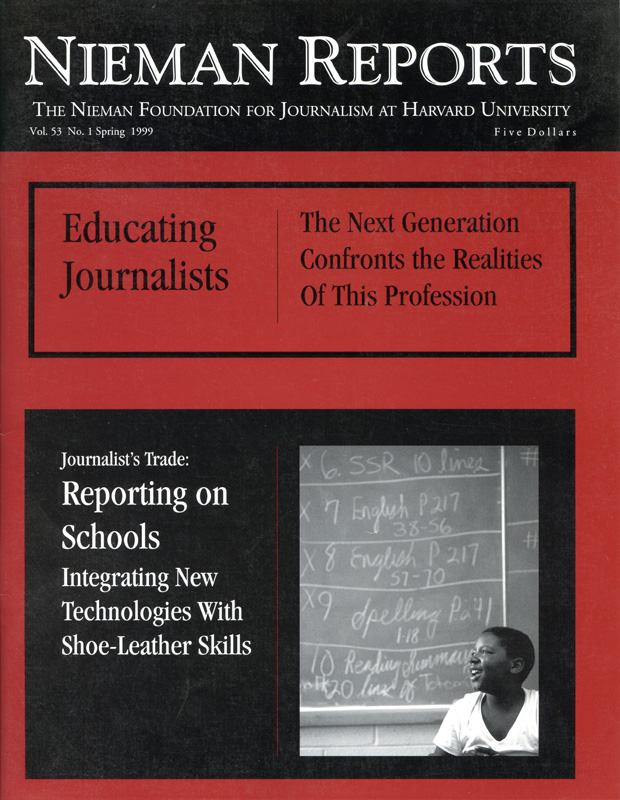In this issue of Nieman Reports, we explore journalism from the perspective of those who are training to be journalists, those who are teaching the next generation, and those who recently entered this profession.
We open with an article written by our youngest journalist, a 19-year-old from a tiny town in rural Alabama who became a community reporter at the age of 13 for a newspaper that he and fellow students created.
Then we visit with several journalists-in-training and with a professor who reflects on what it was like to learn about journalism in the late 1960’s compared with what it is like to teach these skills today.
Later on, we hear from two reporters, one working in traditional media (a newspaper), the other in the frontier of on-line media.
Finally, two professors offer guidance about critical issues in journalism: the impact of “new media” on journalism and the training of new journalists, and the circumstances that confront minorities as they attempt to enter the journalism profession.
In asking young journalists to write about their experiences, what we wanted to provide was a forum in which they could express their views, concerns and ideas about the way in which journalism is practiced today.
What we found as their articles arrived is that these young journalists raise questions that are relevant for seasoned journalists to ponder. As one correspondent writes: “I know in the future…I’ll take opportunities to listen to interns and recent college graduates who other folks in the newsroom might dismiss as starry-eyed idealists. I hope that listening to their perspectives will help me remember why I chose to become a journalist in the first place.”
We open with an article written by our youngest journalist, a 19-year-old from a tiny town in rural Alabama who became a community reporter at the age of 13 for a newspaper that he and fellow students created.
Then we visit with several journalists-in-training and with a professor who reflects on what it was like to learn about journalism in the late 1960’s compared with what it is like to teach these skills today.
Later on, we hear from two reporters, one working in traditional media (a newspaper), the other in the frontier of on-line media.
Finally, two professors offer guidance about critical issues in journalism: the impact of “new media” on journalism and the training of new journalists, and the circumstances that confront minorities as they attempt to enter the journalism profession.
In asking young journalists to write about their experiences, what we wanted to provide was a forum in which they could express their views, concerns and ideas about the way in which journalism is practiced today.
What we found as their articles arrived is that these young journalists raise questions that are relevant for seasoned journalists to ponder. As one correspondent writes: “I know in the future…I’ll take opportunities to listen to interns and recent college graduates who other folks in the newsroom might dismiss as starry-eyed idealists. I hope that listening to their perspectives will help me remember why I chose to become a journalist in the first place.”



